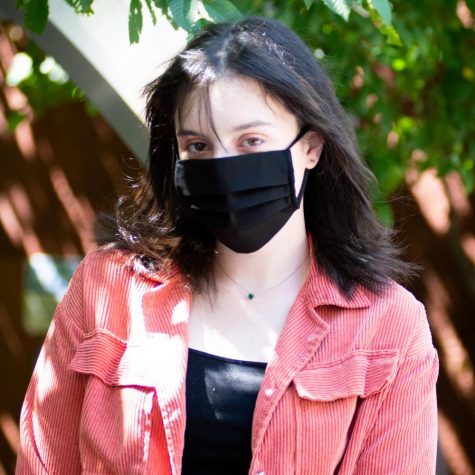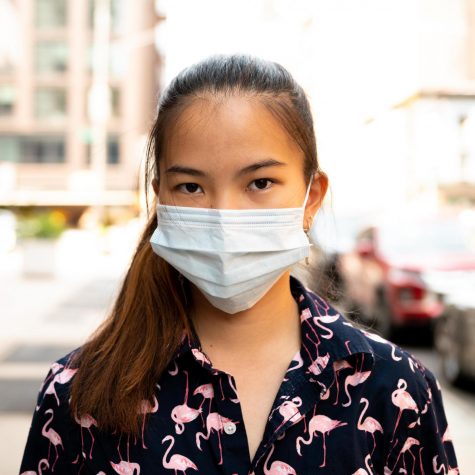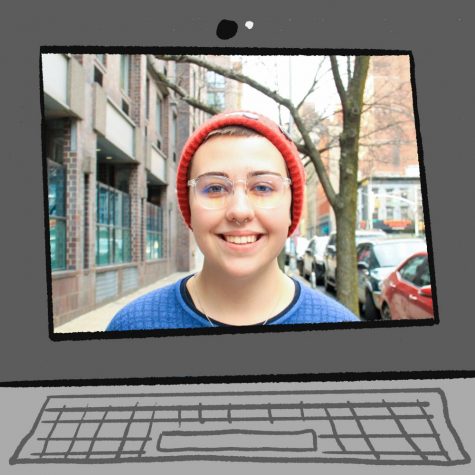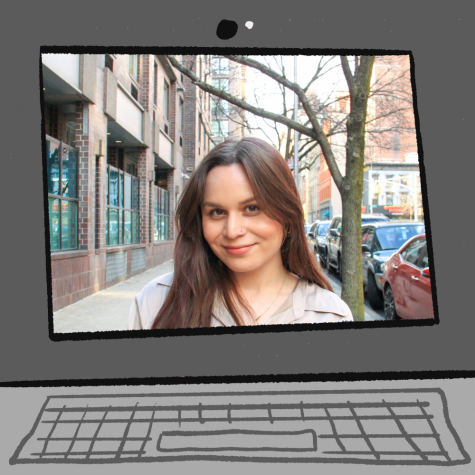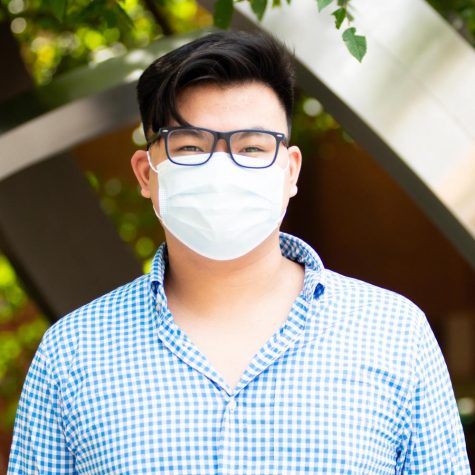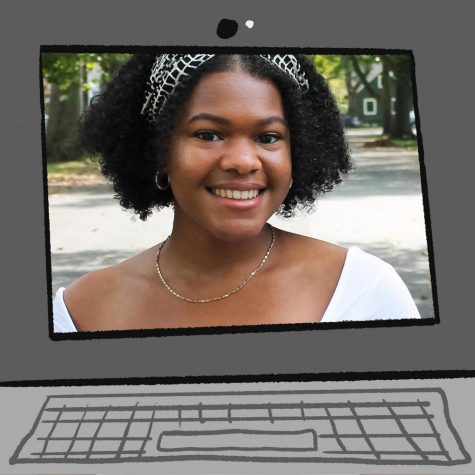Many members of the NYU community have been irreversibly affected by the coronavirus outbreak, either because of the virus itself or the university’s response to it. Students have been scrambling to find housing, fighting to remain in the dorms and facing financial troubles due to unforeseen expenses such as losing jobs or paying for multiple flights. Saying it’s been hard to deal with is an understatement. Whether you’re over-inundated with information, trying to pass your classes while juggling a global outbreak, losing faith in the government or simply losing your mind due to cabin fever, you’re not alone and we’re all in this together.
But one of the most prominent outcomes of the outbreak itself has been the over-induced anxiety, so much of which has simply been because we don’t know what will happen, and because everything is so far out of our control.
In an effort to relieve some of that anxiety, we’ve compiled a list of information: information on the virus itself, on how to get help, on how to advocate for yourself, on how to have fun and dozens of other things. We’ll be updating the list as often as we can.
This article was last updated on May 15, 2020 at 4:26 p.m.
Information
The coronavirus pandemic is an unprecedented event, one that may well be written about in history books. But aside from the pandemic itself, you might be hearing a lot about what’s referred to as an “infodemic”: the phenomenon of the information and news about the virus spreading at a rapid pace, thanks to the internet. While it’s important to stay informed, the constant stream of facts, breaking news and suggestions on preventing the spread might become overwhelming. In this section you can find sources for you to learn more about the virus, as well as how it might affect you or those you care about without having to browse the web, which might be difficult in times of heightened anxiety.
- The Center for Disease Control and Prevention put together a resource page for COVID-19. Here, you can learn how to identify early signs of the coronavirus, how to treat it, how to prevent contracting it and stay updated with live statistics.
- NYU’s Inter-Residence Hall Council is a subcommittee of the Student Government Assembly that focuses on housing and residential affairs. Following NYU President Andrew Hamilton’s announcement of residence hall closures as a result of the COVID-19 pandemic, the committee pressured NYU administrators to provide more transparent departure recommendations for residents. You can view the updated recommendations here.
- Multiple major news outlets have lifted their paywalls on all coronavirus-related articles. These outlets include — but are not limited to — The New York Times, The Wall Street Journal, The Atlantic, Bloomberg News, The Cut, The Philadelphia Inquirer and all Condé Nast publications.
- Get Better is an online platform tracking cases of coronavirus in New York and providing comprehensive and easy to access statistics, including breaking down the total number of cases into counties and boroughs as well as graphics comparing the outbreak in China, Italy and the U.S.
- The NYU School of Medicine students created a document where they add accurate information about the virus and community resources like testing centers in order to combat the spread of panic-inducing misinformation about the pandemic.
- The Community Health Advocates, a subsect of the Community Service Society, exists to help residents of New York state navigate the healthcare system. Though the physical buildings are closed, you can call their toll-free helpline at 888-614-5400 from 9 a.m. – 4 p.m. Monday – Friday, or email [email protected]. The helpline is available in English and Spanish, and translators for other languages are occasionally available.
NYU Housing
On March 16, NYU students who lived on campus were instructed — with no advance warning — to move out of their dormitories. For many, dorm rooms serve as the only home they have, be it due to family circumstances or coming from places more affected by the virus than New York. An eviction as sudden as this one put a lot of students at risk of homelessness and/or severe financial instability.
In an attempt to somewhat support students struggling to deal with the university’s decision, NYU prepared resources one can turn to if they find themselves in a difficult situation due to dorm evictions.
- If you lived on campus and were recently evicted but you don’t live within driving distance of the New York campus, you can fill out this survey, and NYU will arrange for your belongings to be packed up and shipped to you.
- If you lived on-campus and were recently evicted but have nowhere else to stay, you can fill out this survey and apply for an exemption to possibly stay in the NYU housing system. However, Hamilton warned in an email that for those who apply to stay, “the bar will be high,” and Wais said that students who are granted exemptions will likely need to move to another residence hall.
- If you were granted an exemption to stay in NYU’s residence halls, you may need to access the Courtesy Meals Program. Courtesy Meal requests are only being processed virtually, and can be picked up at Palladium Dining Hall, the only dining hall open at the moment. Additionally, a recent email from NYU’s Senior Leadership guaranteed that any student still living in NYU housing will be provided breakfast, lunch and dinner, regardless of whether or not they have a meal plan.
- NYU’s Office of Financial Aid has created an application for up to $500 in emergency aid, specifically meant for undergraduate students who were evicted from their residence halls. Please note that the application states that the amount of emergency funding received will be shown in a student’s financial aid award. The application is due Wednesday, March 25. Update: as of March 25, the application is closed.
Student-Led Efforts
In the midst of this chaos, the NYU community showed its true colors by coming together and compiling resources for those dealing with unforeseen difficulties. Here’s a list of what students have been organizing for others in need.
- Many students have been left financially unstable after NYU’s sudden eviction announcement. This Google form was created so students whose housing or financial status has been changed by NYU’s response to the outbreak can tell their stories, as well as tell other students how to send them emergency money. In turn, members of the NYU community who are financially stable can easily access the list and donate to them, or offer them a place to stay, if possible.
- The Executive Committee of NYU’s SGA created this Google form to gather concerns and comments from students given the COVID-19 pandemic. The form will be open for the remainder of the spring semester and responses will be addressed with university leadership. Additionally, they will update this document as new information is received.
- This survey by the NYU Covid Coalition made up of students, student organizations and faculty is to collect information on students displaced by NYU housing so they can advocate for specific needs of students who have been affected and research for emergency back-up options if demands are not met by NYU administration. The Coalition was formed to demand a just response to the current pandemic from NYU. Follow @NYUCovid on Instagram, Facebook and Twitter for more updates.
- NYU students created two forms, one for those offering housing and one for those seeking housing due to dorm evictions and other unforeseen circumstances caused by the pandemic. You can add your information and details to each, depending on what your needs and abilities are at the moment, including whether you want your potential tenants to pay rent or if you need an accessible accommodation.
- A group of Tisch Drama students have started a movement to partially refund Tisch’s tuition, which has gained traction via a Facebook group they created. The movement, called the NYU Tisch Partial Tuition Refund Effort, argues that because Tisch students no longer have access to vital resources that NYU previously provided — production equipment and dance studios, etc. — they should not be expected to pay the full cost of attendance. It also argues that students should be refunded for fees paid for production, equipment and supplies. Update: eligible Tisch students were awarded fee refunds on April 10, but were disappointed in the low amount they received: undergraduate drama students were reimbursed $35.50 for insurance. Other schools received fee refunds as well; the full breakdown is available here. Additionally, the parent of a Tisch student has sued NYU for $5 million in tuition refunds, to be divided between herself and all other families who paid the cost of attendance for the spring 2020 semester. The suit is still ongoing.
- A group of students created a petition for universal A/A- grading policy. It has been implemented at several other schools including Harvard and The New School and the creators of the petition advocate for its implementation at NYU. This policy’s supposed to alleviate stress present with normally graded classes or Pass/Fail classes.
Petitions
Students, staff and faculty are currently fighting for fair grading policies, to postpone commencement and many more causes by writing petitions, which have gained significant online traction.
If you feel strongly about an aspect of your life — or someone else’s — affected by the coronavirus and NYU’s response to it, here’s a list of petitions you can sign. Some have already begun to foster change.
- Two Tisch juniors created a Google form in response to Hamilton’s original email calling for March 22 evictions. The form itself exists for NYU students to ask questions about the eviction process and let others know of the troubles that it has brought for them. The form has had thousands of respondents and was cited in SGA’s March 16 statement to the NYU community, which offered support to the NYU community as well as expressed confusion at the announcement of dorm closures, as SGA had not been told of the evictions prior to receiving the email.
- An anonymous student wrote a petition calling for NYU to give all students the option to take their classes pass/fail and still have the course count toward their major or minor requirement. At the time the petition was written, the Massachusetts Institute of Technology had already put this policy in place. NYU’s SGA met with NYU’s administration to discuss these changes on March 18, as reported by NYU Local. Since the time of publication, there has been no confirmation that all classes will be pass/fail, but the Office of the Provost has discussed the topic with SGA. Update: on March 24, NYU extended its pass/fail application deadline to May 12, and later allowed pass/fail classes to count toward degree requirements. On May 8, an email from the University Registrar said that if a student fails a course they had opted to pass/fail, the failing grade would not be factored into their GPA. NYU’s School of Law implemented a mandatory school-wide pass/fail policy on March 25, while NYU’s College of Dentistry rejected the pass/fail option entirely on April 22.
- Additionally, another anonymous student created a separate petition calling on the College of Arts and Science specifically to give students a pass/fail option. You can sign it here.
- CAS student Matthew Harnick wrote a petition for NYU to partially refund tuition, using the funds it is saving by transitioning online. “The school does not need as much money to run now that everything is remote,” the petition reads.
- CAS senior Paggie Tan created a petition to postpone 2020 Commencement instead of moving it to an online ceremony like some other institutions have done already, such as University of California Los Angeles. Tan justifies this movement due to students devoting their entire lifetimes and the extensive sacrifices some have made to attend NYU, and through hard work, seniors deserve an actual commencement ceremony. Update: the Class of 2020’s Commencement will be indefinitely postponed, according to a university-wide email from President Andrew Hamilton on March 25. On May 20 — the day originally slated for Commencement — NYU will be holding a virtual ceremony, titled the “Celebration for the Class of 2020.” The ceremony will be visible to all via YouTube and Facebook.
- This petition to demand a “just response” from NYU was created by GSOC-UAW, the union for graduate student employees at NYU. Demands include for NYU to provide guaranteed housing, reimburse housing, pay for moving, provide safe living conditions for students and staff, establish an emergency fund and more. NYU community organizations and individuals can add their names to the document. You can make comments and/or sign it here.
- This petition was created by Tisch students with the demand for tuition reimbursement after they learned that they won’t be getting a refund from NYU Tisch School of the Arts for the Spring 2020 semester or part of it. Another petition created by a Tisch student, Anna Lee, aims to achieve a similar goal. Update: eligible Tisch students were awarded fee refunds on April 10, but were disappointed in the low amount they received: undergraduate drama students were reimbursed $35.50 for insurance. Other schools received fee refunds as well; the full breakdown is available here. Additionally, the parent of a Tisch student has sued NYU for $5 million in tuition refunds, to be divided between herself and all other families who paid the cost of attendance for the spring 2020 semester. The suit is still ongoing.
Outside Efforts
In a crisis, the best and the worst in all of us comes to the surface. In the case of these charities and companies, the best is shining through. People in many communities came together to provide the support needed to those most affected by the pandemic, from children of overworked healthcare workers at higher risk of getting infected to students without internet service crucial to continue their online schooling.
If you or someone you know needs a little extra support, here’s a list of services that are available to give a helping hand.
- Mamajuana Cafe is giving out free bagged lunches for children in their community. The meals consist of sandwiches and a snack, and can be picked up from the cafe from 11 a.m. to 1 p.m., and again from 4 p.m. to 8 p.m. Mamajuana Cafe is open seven days a week and is located at 3233 E. Tremont Ave. in the Bronx. Contact them at 718-284-8400 to learn more or to contribute to the cause.
- The Community Kitchen and Food Pantry at 252 W. 116th St. has meals available through Food Bank NYC in the form of to-go and take-home pantry bags. While their community meal program was suspended for quarantine, you’ll still be able pick up food from 4.30 p.m. to 6 p.m. on weekdays.
- Any K-12 and college students without access to a stable Wi-Fi connection to attend their online classes are being offered free internet connection by Spectrum. Call 1-844-488-8395 to schedule your internet installation. Spectrum is waiving installation fees as well.
- Comcast is offering 60-days of free Wi-Fi for education, work and personal health reasons. Xfinity Wi-Fi hotspots across the country will be free including for non-subscribers, data plans are paused for 60 days so all customers have unlimited data with no extra charge. There will also be no disconnects or late fees for people who can’t pay the bill during this time if they contact Comcast to let them know. Low-income customers in areas where Comcast service is available can have 60 days of complimentary Wi-Fi through their Internet Essentials program, and speed of service has increased for all plans. Apply by April 30th.
- If you’re a student displaced due to COVID-19, U-Haul is offering you 30 days of self-storage, free of charge. Go to uhaul.com/storage to find the closest facility to you, and take advantage of the offer in person or online.
- Creative Capital is New York-based organization which supports artists through funding and career networking. In response to the COVID-19 outbreak, Creative Capital has compiled this list of resources for artists whose work has been affected by the pandemic.
- The Keep Americans Connected Pledge was signed by many internet and phone services providers, such as AT&T, T-Mobile, Verizon and many others. It aims to help people with no finances to pay their bill at the moment to remain in-touch with their loved ones and work from home during self-isolation. You can get help with paying your internet and phone bills if your provider’s on this list.
- Shine, in partnership with Mental Health America, has compiled mindful resources such as articles, meditations and information to create a mental health toolkit to those feeling anxiety and uncertainty through these times. Information on how and why to care for your mental health from home is fully accessible through their online toolkits.
- PODS is a company that rents out storage containers and offers moving services. They’re offering a 10% discount on its containers for up to six months of rental. It’s also offering 10% off initial delivery and 10% off for transportation costs in long-distance moves.
- PPE2NYC is a campaign that started to allow the community to support local hospitals and healthcare workers by donating medical supplies and personal protective equipment (for example, N95 respirators and surgical masks). You can drop off whatever you wish to donate, ship it or have someone pick it up from your home. They accept all donations, even if it’s only one surgical mask!
- Adobe has temporarily made their entire Creative Cloud free for students and faculty affected by the outbreak. This offer is available until May 31, 2020, and requires you to sign in with your NetID. Download the Creative Cloud here.
- GoFundMe has launched its Small Business Relief Initiative. If you’re a small business owner, you can start a GoFundMe through the initiative, and if you’re looking to donate, you can donate through the initiative. GoFundMe will be matching all donations up to $500, and small businesses are also able to apply for a larger grant from the Small Business Relief Fund.
- Scholly has announced that unlike its usual larger donations and grants, it will be providing $200 in cash to students, parents of students or alumni who have been financially affected by the outbreak. Applications for grants are required — apply here.
- Headspace, a service for meditation and mindfulness, provides free online meditations to everyone dealing with the outbreak in New York and struggling with managing their growing stress or anxiety. Guided meditations include ones for reducing stress, sleeping well, taking a break, focusing on daily tasks and many others.
- Rape, Abuse & Incest National Network pledged to keep assisting survivors during the outbreak of COVID-19. They implemented an online chat feature for those in abusive domestic situations and unable to use their hotline to talk to a counselor on the phone.
- The Franklin Report created a list of essential workers ready to offer their services during PAUSE in New York. The list includes professionals dealing with heating and air conditioning, plumbers, electricians and other services.
Government
Many are criticizing the United States federal government’s handling of the outbreak, but most members of the NYU community are affected more directly by the decisions of state governments, or the governments of their own home countries. Below is a list of efforts by state and international governments to combat the coronavirus, or to help residents continue with life as easily as they can.
- If you’re registered to vote in New York, you can still vote, regardless of where you are now. Apply for an absentee ballot here, and learn more about the absentee ballot process here.
- Drive-in testing centers have opened throughout New York State during the past week. Facilities in New Rochelle and at Jones Beach on Long Island opened on Tuesday, March 17; more centers opened later in the week in Staten Island, Rockland County and Suffolk County.
- On Wednesday, March 25, New York State Governor Andrew Cuomo announced that the state has implemented a free Mental Health Electronic Help Center, thanks to the volunteer work of over 6,000 qualified psychologists and therapists. Call 1-844-863-9314 to schedule a virtual mental health appointment over video chat or phone call.
- The Dubai Health Authority has ensured that anyone in the United Arab Emirates can access a COVID-19 test at any hospital or health center if they meet the test’s criteria. Schedule an appointment by calling the DHA’s helpline, 800342, and make sure to bring your insurance card and Emirates ID to your appointment.
- Testing facilities are being opened in New Jersey, though the cost of a test still remains undetermined. Drive-through facilities are located in Paramus and Holmdel. Additionally, tests are being conducted at hospitals in New Brunswick and Hackensack. Appointments are not necessary, but those who arrive at the drive-through facilities are screened for symptoms, and if they are asymptomatic they will not be tested. The testing center in Paramus, which opened Friday, March 20, will be open from 8 a.m. to 4 p.m. seven days a week. State identification is required.
- On Friday, March 20, California announced it is waiving all co-pays for coronavirus screening tests, regardless of the testee’s health insurance provider and immigration status. The state is also extending the enrollment period for all health insurance plans to June 30, so those who aren’t currently covered (or have lost coverage due to losing their jobs) have time to apply and get tested.
- The Florida Department of Health’s website lists all details about the state’s relationship to the coronavirus, including up-to-date numbers of confirmed cases, deaths and county-specific information. The website also has separate sections detailing public services and resources that the state offers and how to access them. However, it does not include whether or not one is able to be tested for the coronavirus in the state. The website is available in English, Spanish and Haitian Creole.
- Not everyone staying at home to prevent the spread of COVID-19 is safe at home. If you or someone you know needs help and is facing domestic violence, you can call New York State Domestic and Sexual Violence Hotline at 1-800-942-6906. According to a recent Instagram story by Governor Andrew Cuomo, the organization will assist victims in finding shelter to safely quarantine during the outbreak.
Resources Unrelated to Coronavirus
At this time, many online resources and businesses have chosen to provide their services for free to assist students and others in quarantine or displaced by the pandemic. Below you can find a list of services and resources you might see as helpful with your daily routines at a time of such uncertainty.
- Your NYU email address gives you access to the full Microsoft Office Suite. Click here to download it — just make sure you have enough free storage on your computer first.
- If you’re missing all the perks of NYU’s wifi, download the NYU VPN. Turning the VPN on will give you access to JSTOR, EBSCO, Kanopy and Swank, among thousands of other resources you can only access for free by being a student. (Even without using NYU’s VPN, Kanopy is free to access with an NYU NetID.)
- Scribd is a digital library subscription service. It is currently offering its entire online library of e-books, magazines and audio books free for 30 days (no credit card required). To redeem your free 30-day subscription visit Scribd’s subscription page and create an account using an email, google or facebook account.
- If you already use the Adobe Creative Cloud and maintaining the cost may be a burden during this time:
-
- Log in at Adobe ID
- Under ‘My Plans’ click ‘Manage Plan’
- Click ‘cancel plan’, click through the steps as if you were cancelling your plan to ‘offers’
- You should be offered 2 months free
There may be some differences depending on your plan. This is not an offer unique to the COVID-19 crisis, but rather Adobe’s way of keeping their subscribers. Try it out.
Fun During Quarantine
Surprisingly, learning TikTok dances with your family or roommates isn’t the only entertaining thing you can do while in quarantine. While you’re trying to maintain a routine or a sense of wellbeing while indoors and self-isolating, you can also stay connected with your loved ones during the period of social distancing. Whether you want to turn inward and practice introverted self-care or virtually spend time with your friends, it might help with alleviating stress of being contained in the four walls of your bedroom. Here you can find ways to combat boredom while quarantined.
- Kast and its service, Rabbit, can help you share your screen with your friends as well as a video from your web camera. If you’re in a long-distance relationship or just missing your friends from across the country, this might be a way to host a movie night and be fully present in the online space you share. In case you don’t have access to your laptop, Kast and Rabbit work for iOS and Android platforms. It also works well for PCs — which, unlike MacBooks, don’t have the option to screen-share — and can be used with more than two devices at the time.
- MindfulNYU is an initiative through the NYU Office of Global Spiritual life that offers resources to students for well-being on campus. For the remainder of the spring semester, MindfulNYU will be providing all their yoga and meditation classes remotely through live video sessions. You can find their class schedule here.
- Video-chatting app Houseparty can be downloaded as on your phone or computer; it works for iOS, macOS, Android and PC. You can use it for virtual hangouts with friends as it allows you to connect with eight people at a time, a perfect number for a virtual dinner party during social distancing.
- If you’ve had enough of Zoom lectures but still want to keep your brain stimulated, Bits and Pieces is having a major sale on jigsaw puzzles — act quickly, while supplies last!
- A number of movies have been released for streaming or digital purchase, including (but not limited to) Tom Hooper’s “Cats.” Comcast recently announced that smaller movies meant to be shown in theaters during the outbreak will be released online and in theaters simultaneously, and all Universal movies currently in theaters are available online for a 48-hour rental as of Friday, March 20. Warner Brothers and STX are following suit and will be releasing “Birds of Prey” and “The Gentlemen,” respectively, to rent online in the coming week.
- The New York Times has compiled a list of “Comforting Streaming TV Shows for Stressful Times.” Shows on the list can be streamed on Netflix, Hulu, Disney+, FXNow, Amazon Prime Video and BritBox.
- Bon Appetit, beloved food and cooking magazine, has compiled a list of comfort-food staples to make with ingredients you most likely have in your pantry right now, once you grow tired of making the same thing over and over again with your non-perishable foods. Their website is also featuring easy baking and cooking recipes to keep you occupied during quarantine.
- Food blog Hummingbird High is sharing recipes without ingredients that are hard to find under quarantine, like eggs, as well as recipes to create smaller portions instead of most recipes that are meant to serve parties which should not be happening during this time.
Is there a resource we missed? Let us know at [email protected] and we’ll add it.
























































































































































